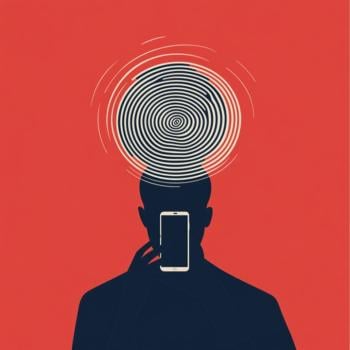Today, however, ‘command socialism' is more or less dead, and globalizing capitalism is the only game in town. Our collective relationship to the biosphere and its ecosystems is largely mediated by what its corporations do, and what they do is largely determined by what is most profitable -- quite apart from its ecological consequences, which still tend to be ignored or "externalized" when possible.
The consequence is an unsustainable economic system, and a deluded worldview that supports it. All the world's economies are wholly-owned subsidiaries of the earth's biosphere, but we still have great difficulty understanding what that implies. Yes, it does mean the end of business-as-usual. It means the greatest possible challenge to consumer capitalism, whose corporations must either mutate into something very different, or be replaced altogether. And this is a transformation that Buddhists should embrace and encourage, because it is also implied by the teachings of the Buddha.
The news media have been telling us that the financial crisis -- which is far from over -- is due to the excessive greed of Wall Street speculators and the unbridled spending of Main Street borrowers. Yet the problem goes much deeper, and our predicament is much worse. Greed is not a virus that has infected the economic hard drive; it has become the software that runs our economy.
Buddhism does not say much about evil itself, but it emphasizes the three roots of evil: greed, ill will, and delusion. The basic problem with our present economic system is that it institutionalizes the first of those roots. As George Lakoff recently put it, "The economic and ecological meltdowns have the same cause: the unregulated free market and the idea that greed is good and that the natural world is a resource for short-term private enrichment. The result has been deadly, toxic assets and a toxic atmosphere" (Huffington Post, 19 May 2009). Two sides of the same coin.
Greed also takes two forms, according to our means. "In a consumer society there are two kinds of slaves: the prisoners of addiction and the prisoners of envy" (Ivan Illich). The Buddha's first noble truth identifies dukkha "dissatisfaction" as inherent to the human condition. It is the nature of an unawakened mind to be bothered by something. We usually experience this as the feeling that "something is wrong with me."
Our economic system (which includes the media mega-corporations that make their profit from advertising) takes advantage of this and conditions us to understand our sense of lack as "I don't have enough ..." -- especially not enough things and not enough money. The consequence is that we always want ("need") more. This individual lack is institutionalized into a collective craving that can never be satisfied. Investors seek increasing returns in the form of dividends and higher share prices. This puts pressure on business executives, who must think this way if they hope to rise to the top. This general expectation translates into an impersonal but constant demand for evermore profit and growth, which requires evermore production-and-consumption, and evermore sophisticated advertising to make us want things that often didn't even exist last year.
Here's one way to point out the basic difficulty. Capitalism is about using capital (money for investment) to create more capital. Since the goal is to end up with more money, everything else becomes a means to that end. "Everything else" in this case includes Mother Earth ("resources"), human life ("labor"), and society itself (we must continually adapt to the changing requirements of the economy).
The ultimate irony is that money in itself is literally worthless: whether pieces of paper or numbers in bank accounts, money has value only because it is our socially-agreed medium of exchange. A $100 bill is just a piece of paper. We can't eat it, drink it, ride on it, etc. We forget that money is a social construct -- a kind of group fantasy. The anthropologist Weston LaBarre called it a psychosis that has become normal, "an institutionalized dream that everyone is having at once."
This dream can become a nightmare. Psychologically, the danger is that means and ends become reversed, so the means of life becomes the goal. The philosopher Schopenhauer called money "abstract happiness" -- that is, not genuine happiness but something that now represents it in our culture. Another way to say it is that money becomes "frozen desire": not desire for anything in particular but a symbol for the satisfaction of desire in general. And what does the Buddha say about desire? Frozen or not, it remains the root cause of suffering.
Collectively, this means that what motivates our economic system is the drive to use anything and everything (now "natural resources," including "human resources") to create something that is really nothing. We don't usually notice the absurdity of this because we are preoccupied with the more and more that the system produces. The fact that so many of us already have more than we need is addressed by manipulating our awareness, in increasingly sophisticated ways, so that we always want something else that we don't yet have. It's always the next _______ (fill in the blank) that will satisfy us.




